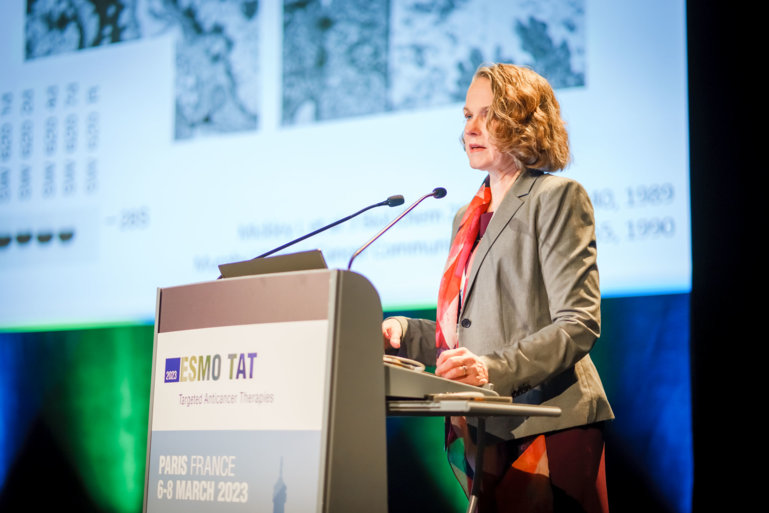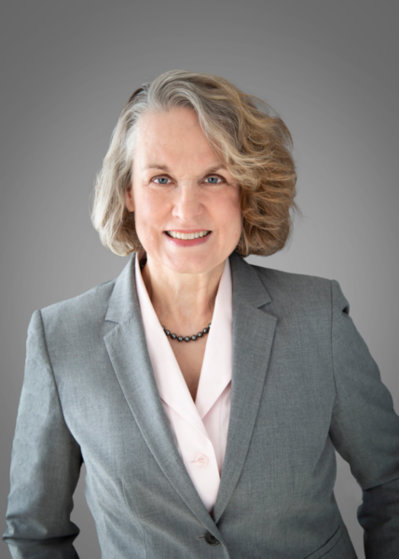The 2023 ESMO TAT Honorary Awardee Prof. Susan E. Bates gives an overview of the lasting challenges and unfulfilled potential of these therapies
Although the concept of epigenetic therapy has been around for about 50 years, few agents are approved today and then only in niche indications. In her Keynote Lecture, ‘Epigenetic therapies: Have they come of age?’ at the ESMO Targeted Anticancer Therapies Congress 2023 (Paris, 6–8 March), 2023 ESMO TAT Honorary Awardee Prof. Susan E. Bates reflects on the reasons why therapies have struggled to find their place in oncology. Co-Director at the Columbia/JJP Bronx VAMC Cancer Center and Professor of Medicine at the Columbia University Irving Medical Center, New York, Bates has received the Award in recognition of her significant contribution to the field of anticancer drug development, including her studies in epigenetic therapies and in clinical trials assessment.
Why, after so much time, has apparently so little been achieved in the field of epigenetic therapies?
At a very fundamental level, we do not really know the epigenetic origin of cancers, such as cutaneous T-cell lymphomas, that are likely to respond to these therapies. One possibility is that exogenous agents alter signalling pathways, which facilitate sustained cancer growth. Also, we still do not know the precise mechanism of action of epigenetic therapies or why patients invariably develop resistance to treatment. So, a huge amount of work needs to be done if we are to extend the reach of epigenetic therapies to other cancer types and to ensure they continue to be active long term. That said, it is encouraging to see the emergence of epigenetic treatments beyond romidepsin – an inhibitor of histone deacetylase that modulates gene expression – with the US FDA approval in recent years of small molecule inhibitors (enasidenib and ivosidenib) of the metabolic enzymes, isocitrate dehydrogenase 1 and 2 (IDH1 and IDH2), for the treatment of acute myeloid leukaemia and cholangiocarcinoma. Given that there are at least 800 proteins known to affect epigenetic cellular mechanisms, there are likely enormous opportunities for other therapies to be developed. These potential targets now need to be described and validated and their potential for druggability investigated.
What do you see as the current and future challenges for epigenetic therapies?
A major challenge for epigenetic therapies is selecting the patients who are likely to have a response to treatment and there is an urgent need for predictive biomarkers. Currently, this is being pursued on a drug-by-drug basis, but a more concerted global effort is required if we are to make greater progress in this area. Another hurdle is the identification of effective combination partners for epigenetic therapies. The idea that the use of these agents increases recognition of the cancer by the immune system has been somewhat disappointing clinically in trials combining epigenetic treatment with immunotherapy. Similarly, promising laboratory signals of efficacy for the combination of chemotherapy and epigenetic therapy have not been realised in the clinic.
It is likely that advances in technology could help to move the field forward at a faster pace than has previously been possible. Combining high throughput methods, such as ChIP-seq, ATAC-seq and RNA-seq, with intense bioinformatics should help to improve our understanding of protein–DNA interactions and chromatin structure and accessibility.
Drug development has formed the core of your work as a researcher. What do you consider to be your greatest achievements to date?
Throughout my career, I have been motivated by a desire to understand how therapeutic agents work and how and why resistance develops so that we can find ways to improve the long-term efficacy of treatment. In this respect, there are two achievements of which I am particularly proud. Firstly, my laboratory was one of three groups that almost simultaneously described and cloned the ABCG2 substrate transporter in the late 1990s (Cancer Res 1999;59:8–13). Although we were never able to establish it as a therapeutic target in oncology, ABCG2 retains an important role in the physiological uptake and transport of potential therapies. Secondly, my group was instrumental in the development of the epigenetic agent romidepsin (J Clin Oncol 2009;27:5410–5417) and our work helped to secure its approval by the US FDA for the treatment of T-cell lymphomas. In the ten years since the approval of romidepsin, we have continued to investigate its mechanisms of action and potential combination partners in an attempt to widen the tumour types that might benefit from this agent.
Outside of drug development, I am also proud of the work I have conducted with my colleague and husband, Tito Fojo, on developing tumour growth rate as a potential clinical trial endpoint for the assessment of treatment efficacy. We have demonstrated that the rate of tumour growth correlates inversely with survival (Oncologist 2008;13:1046–1054) and we believe that this metric could not only help physicians quantify treatment benefit but also, because it allows clinical trials to be conducted with fewer patients, may help to expedite regulatory therapy approval. It is currently being investigated by a number of pharmaceutical companies in clinical trials and our aspiration is that it will eventually be used routinely in the assessment of clinical trials.
What is the most important lesson you have learned during your studies?
Successful research relies not just on a lot of hard work, but some serendipity, and a dedicated group of researchers. Although patients with T-cell lymphomas are not generally included in early-phase trials, one patient with peripheral T-cell lymphoma who enrolled on our original phase I trial demonstrated a marked response to treatment (Blood 2001;98:2865–2868). This chance enrolment led to the investigation of romidepsin in an expanded cohort of patients with T-cell lymphoma. And the determination and collegiality of the individuals who supported the romidepsin development ultimately paved the way for the introduction of epigenetic therapies for T-cell lymphoma.
Don't miss:
2023 Honorary Award Keynote Lecture: Epigenetic therapies: Have they come of age? ESMO Targeted Anticancer Therapies Congress 2023, Paris, France (6-8 March 2023).
Welcome to ESMO TAT 2023 and Honorary Award, 06.03.2023, h. 09:00 – 09:40, Amphitheatre Bordeaux




